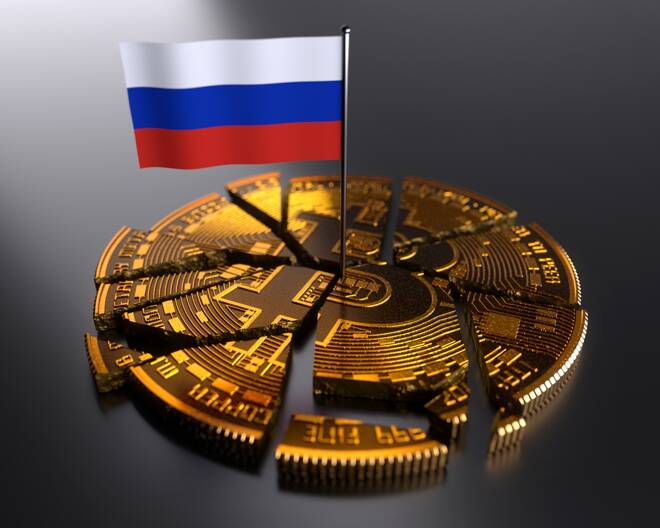Advertisement
Advertisement
Capital Control Measures in Russia Highlight the Use Case for Crypto
By:
Harsh sanctions forced Russia to take measures to support its currency.
Key Insights
- Russia introduces measures to stop capital flight.
- Sanctioned companies will likely fail to use crypto to avoid sanctions as the crypto market is too small for them to hide their operations.
- The recent developments highlight the benefits of decentralized finance.
Russia has imposed capital control measures after its Central Bank was hit with sanctions. How will it impact crypto markets?
Russia Attempts To Stop the Flow of Capital From the Country
Russia has introduced specific capital control measures, including a ban on moving money to foreign banks. Russian exporters must sell 80% of the currency, which was received from January 1, 2022, in three working days.
Meanwhile, several exchanges have rejected calls for a blanket ban on Russian accounts, but it is already evident that traditional methods of funding accounts via credit cards or e-wallets will not work for Russian users.
Most likely, Russian users will try to use private wallets instead of exchanges as they provide anonymity. P2p platforms will also enjoy increased usage. I will also note that such methods will likely be used by ordinary citizens, trying to save their money in fear of future restrictions rather than by companies under sanctions, as the crypto market is not big enough to hide them.
What’s the Impact on Crypto?
Bitcoin and Ethereum have been recently moving higher, as the recent developments highlighted the use case for crypto.
The main risk for the crypto markets is the potential use of crypto to evade sanctions, which will attract strong interest from regulators. At this point, this risk looks minimal as sanctioned companies are too big, and it does not look plausible for them to use crypto for their needs.
If the above-mentioned risk does not materialize, crypto markets may get additional support as more people from various countries will want to diversify their holdings away from fiat currencies and the traditional financial system.
About the Author
Vladimir Zernovauthor
Vladimir is an independent trader, with over 18 years of experience in the financial markets. His expertise spans a wide range of instruments like stocks, futures, forex, indices, and commodities, forecasting both long-term and short-term market movements.
Advertisement
